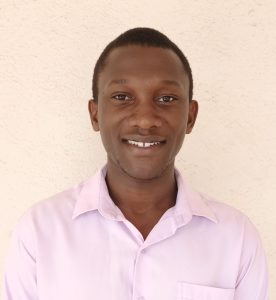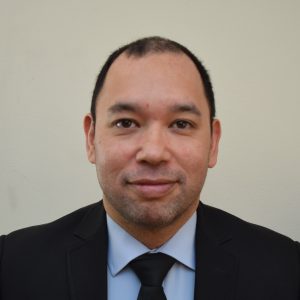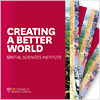The Spatial Sciences Institute is pleased to announce the incoming 2022 cohort to the Population, Health and Place Ph.D. program.
Please join us in welcoming these five outstanding students to the Trojan Family!
Jacob Gizamba

BS Wildlife Health, Makerere University, Uganda (2019)
MPH Epidemiology and Biostatistics, University of Cape Town, South Africa (2022)
Jacob has served as a teaching and research assistant at the Department of Public Health and Family Medicine, University of Cape Town, since spring 2021. There he has been engaged in research examining and modelling the burden of chronic diseases in Africa. He co-authored a published article in the Pan African Medical Journal and has an article under review by PLOS Neglected Tropical Diseases journal. Jacob has an interest in epidemiology and spatiotemporal patterns of infectious diseases, especially in tropical zoonotic infections and vector-borne infections, and their transmission dynamics.
While studying in the PHP program, Jacob would like to focus his research on integration of epidemiological and spatial techniques to better understand the distribution and determinants of the heterogeneity of health states within the population.
Erica Ho

BA Global Health, UC San Diego (2018)
MPH Global Health & Environment, UC Berkeley (2020)
Erica has been a research associate at the AltaMed Institute for Health Equity, where she has led several research projects aiming to address various social determinants of health patients within the AltaMed health system face, such as hunger and housing insecurity. She previously has served similar roles at UC Berkeley’s School of Public Health and the Terasaki Institute for Biomedical Innovation. She has coauthored an article published in the International Journal of Environmental Research and Public Health and has several more under review at other various journals.
As a Population, Health and Place PhD student, Erica hopes to combine her interests in spatial analysis and environmental health to conduct research on innovative ways to promote water, sanitation and hygiene safety in resource-scarce areas in international communities.
Laura Messier

BA Architecture, University of Texas at Austin (2008)
Graduate Certificate in Geographic Information Systems, University of Texas at Arlington (2021)
Laura has worked as an architect for ten years with licensure in New York, California and Texas. She was most recently an associate at Jensen Architects in San Francisco, where she led several award-winning projects. Since 2018, she has been deeply engaged with walkability issues in Dallas, Texas and, in 2020, was named a National Institute for Transportation and Communities Scholar for which she produced a manuscript examining the sidewalk policies of 30 U.S. cities. In 2022, she was awarded a National Science Foundation Graduate Research Fellowship.
In the Population, Health and Place program, she plans to continue her research of sidewalk policies, with the goal of quantifying the costs of poor sidewalks with respect to poor health, climate, and other impacts, relative to the cost of the infrastructure itself. She also will pursue her broader interest in the way the built environment influences behavior and health, the unequal impact across demographic groups, and the policies and government structures that shape these environments.
Iskar Waluyo

BS Environmental Engineering, Universidad Autónoma Metropolitana Azcapotzalco, Mexico
MS Urban Studies and Design, Universidad Autónoma Metropolitana Azcapotzalco, Mexico
Iskar is an environmental engineer who specializes in data science and geomatics. He is a multidisciplinary researcher and has worked in public and private works projects as a consultant. He is broadly interested in research that helps better understand and improve the relationship between urban development and environmental conservation. Specifically, he intends to focus his research on using open source software and open data to analyze food systems in Mexico and the United States. He is currently working on making web maps with R and open data that help visualize food waste production in Mexico City.
Jiahao Wang

Bachelor of Medicine, Peking University, China (2020)
Bachelor of Economics, Peking University, China (2020)
Master of Medicine, Social Medicine and Health Service Management, Peking University, China (2022)
Jiahao has been collaborating with Chinese CDC and Johns Hopkins University, conducting a series of research to address the COVID-19 vaccine hesitancy, and to inform rotavirus immunization planning by disease burden assessment and economic evaluation. So far, he has published five first-author articles in journals, including Expert Review of Vaccines and Human Vaccines & Immunotherapeutics.
With an interest in urban health, public health surveillance and health policy planning, he would like to explore topics on spatio-temporal disease modelling, impacts of location and social determinants of health and health disparity during his study in the Population, Health and Place program.





